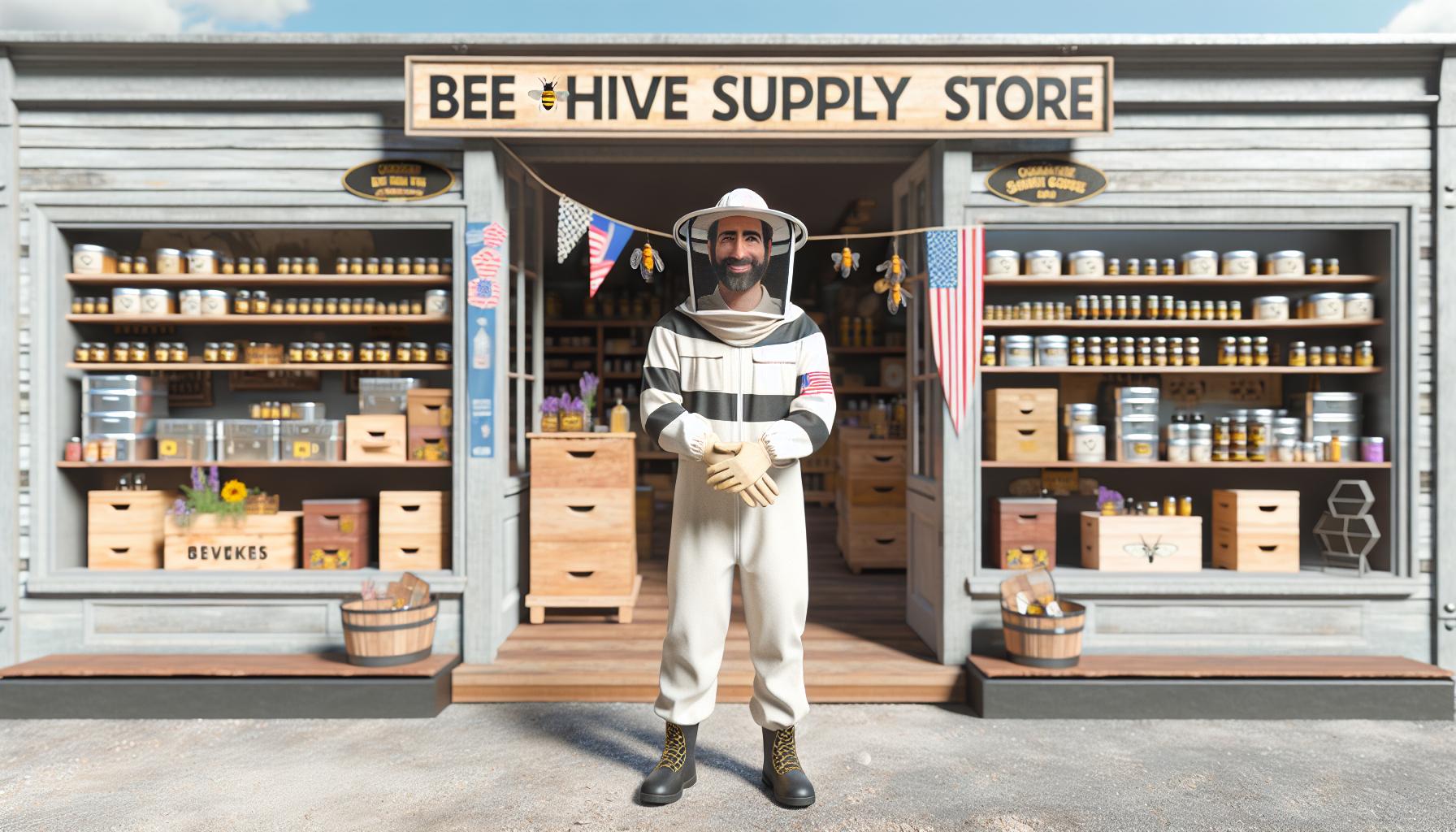For those passionate about beekeeping, having a reliable beehive supply store nearby can make all the difference. Whether you’re a seasoned apiarist or just starting, access to high-quality equipment and expert advice is essential for maintaining healthy hives and producing delicious honey.
Local beehive supply stores offer not only essential tools such as hives and protective gear but also valuable guidance from experienced beekeepers. This connection fosters a sense of community and helps newcomers navigate the fascinating world of queen bees.
In this guide, you'll learn how to find the best beehive supply stores near you and what to look for to ensure you get the best equipment and support for your beekeeping journey.
What to Look for in a Beehive Supply Store
Selecting the right beehive supply store is crucial for ensuring a successful and rewarding beekeeping experience. The following factors can help you make an informed choice.
Quality of Products
Quality matters when it comes to beekeeping tools and supplies. Look for stores that stock durable equipment made from reliable materials. Nationally recognized brands such as Mann Lake, Dadant, and Kelley Beekeeping are known for their high standards. Reading customer reviews can also help identify trusted products.
Range of Equipment Offered
A well-stocked store provides a better shopping experience. Look for stores that carry essential items like beehives, smokers, honey extractors, and protective gear. Some stores also offer specialty items like queen-rearing kits, bee feed, and swarm lures, which can be beneficial for advanced beekeepers.
Expert Knowledge and Customer Support
A great beehive supply store should have knowledgeable staff who can answer your questions, provide troubleshooting advice, and recommend the best products for your needs. Look for stores that offer workshops, classes, or consultation services for beekeepers of all experience levels.
Benefits of Shopping Locally
Supporting local beehive supply stores offers numerous advantages beyond just acquiring equipment. It fosters a thriving beekeeping community and ensures quick access to essential supplies.
Supporting Local Beekeepers
When you purchase from a local beehive supply store, you contribute to the local economy and support nearby beekeepers. Many of these stores carry products sourced from local suppliers, helping sustain beekeeping efforts in your area.
Immediate Access to Supplies
Local stores provide instant solutions for urgent beekeeping needs. Instead of waiting for shipping, you can quickly purchase hive tools, feeders, and protective gear when needed. This convenience is especially beneficial during peak beekeeping seasons when time-sensitive tasks require immediate action.
Hands-On Product Inspection
Unlike online shopping, buying from a physical store allows you to inspect products before purchasing. You can check hive quality, try on protective gear, and compare different equipment options in person.
Tips for First-Time Beekeepers
Starting with the right tools and knowledge is crucial for a successful beekeeping journey. Here are some beginner-friendly recommendations.
Essential Equipment for New Beekeepers
If you’re just getting started, make sure you have the following essential tools:
-
Beehives – A complete hive setup with frames and foundation.
-
Bee Suit – A full-body suit, gloves, and veil for sting protection.
-
Smoker – Essential for calming bees during inspections.
-
Hive Tool – Helps open hives and manage frames.
-
Bee Brush – Gently moves bees off frames and hive surfaces.
Many beehive supply stores offer starter kits that include these essentials, making it easier for new beekeepers to get started.
Educational Resources for Beginners
Beekeeping requires ongoing learning. Here are some valuable resources:
-
Books – Beginner-friendly beekeeping books that cover topics like hive biology and pest management.
-
Online Courses – Platforms offering structured courses for new beekeepers.
-
Local Beekeeping Clubs – Networking opportunities and hands-on experiences with fellow beekeepers.
-
Workshops – Many supply stores and beekeeping associations host classes and training sessions.
Conclusion
Finding a local beehive supply store can significantly enhance your beekeeping experience. With access to quality products and expert advice, beekeepers can feel confident in their choices. Supporting these local businesses not only benefits individual beekeepers but also strengthens the community.
Whether you're just starting or looking for specialty beekeeping supplies, local stores provide the resources needed for success. By choosing to shop locally, beekeepers contribute to the health of bee populations and foster a thriving beekeeping environment.
Frequently Asked Questions (FAQs)
1. Why is it important to find a local beehive supply store?
Local stores offer quality equipment, protective gear, and expert advice. Shopping locally also supports the community and ensures access to products suited for your region’s specific beekeeping needs.
2. What should I look for in a beehive supply store?
Choose a store that stocks high-quality products from reputable brands like Mann Lake and Dadant. A wide range of supplies, knowledgeable staff, and community events can enhance your beekeeping experience.
3. How does shopping locally benefit the community?
Purchasing from local beehive supply stores strengthens the local economy and supports nearby beekeepers. It also ensures that beekeepers have immediate access to essential supplies, reducing dependence on long shipping times.
4. What essential equipment do beginner beekeepers need?
New beekeepers should invest in a complete hive setup, a bee suit, a smoker, a hive tool, and a bee brush. Many supply stores offer starter kits that include these items.
5. Where can I find resources to learn about beekeeping?
Great resources include beekeeping books, online courses, local beekeeping clubs, and workshops hosted by supply stores or beekeeping associations.



